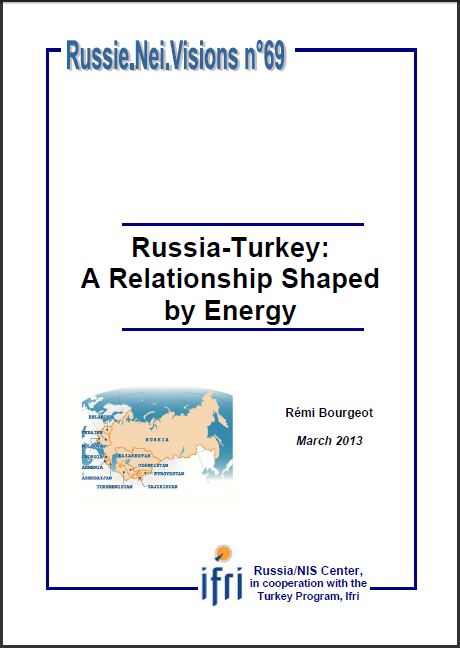Russia-Turkey: A Relationship Shaped by Energy

Deepening energy ties between Turkey and Russia prompt questions as to the balance of power between the two countries, with the former relying heavily on the latter for its energy needs.
In light of Europe's diversification efforts and of tensions with Ukraine, Russia is building the South Stream pipeline under the Black Sea (through Turkish territorial waters). At the same time, Turkey is strengthening its position in South Stream's rival projects, which aim to supply the EU with gas from the Caspian Sea. This means there is a difficult balance here: while Russia attempts to protect its European revenues, Turkey is trying to enhance its status as an energy hub between Europe, the Caucasus and the Middle East. In addition, the Turkish government and, increasingly, private Turkish operators are developing an energy partnership with Russia in a growing number of fields, including nuclear power. The economic significance of these common projects explains the desire of the two countries to play down their contrasting political interests in the Middle East.
This paper is the product of cooperation between the Russia/NIS Center and the Contemporary Turkey Research programme, Ifri.
Download the full analysis
This page contains only a summary of our work. If you would like to have access to all the information from our research on the subject, you can download the full version in PDF format.
Russia-Turkey: A Relationship Shaped by Energy
Related centers and programs
Discover our other research centers and programsFind out more
Discover all our analysesRussia's Asia Strategy: Bolstering the Eagle's Eastern Wing
Among Russia’s strategic priorities, Asia traditionally played a secondary role compared to the West. In the mid-1990s, then Foreign Minister Yevgeny Primakov initiated a rapprochement with China and India. Then, in 2014, deteriorating relations between Russia and the West prompted Moscow to begin its “great pivot to the East”.
Kazakhstan After the Double Shock of 2022: Political, Economic and Military Consequences
The year 2022 represented a dual shock for Kazakhstan. In January, the country faced its most severe political crisis since independence, followed in February by Russia’s full-scale invasion of Ukraine, which cast uncertainty over the borders of post-Soviet states. These consecutive crises profoundly shaped Kazakhstan’s domestic and foreign policy.
How the Russian Army Changed its Concept of War, 1993-2022
The traditional and high-intensity war that has occurred in Ukraine since Russia decided to invade raises a key issue: did post-soviet Russian strategic thought really prepare Russia for waging this war?
Russia's Nuclear Deterrence Put to the Test by the War in Ukraine
From the outset of its “special military operation” (SVO) against Ukraine on February 24, 2022, Russia, which possesses one of the world’s largest nuclear arsenals, has adopted aggressive deterrence measures and a resolutely menacing rhetorical stance.










